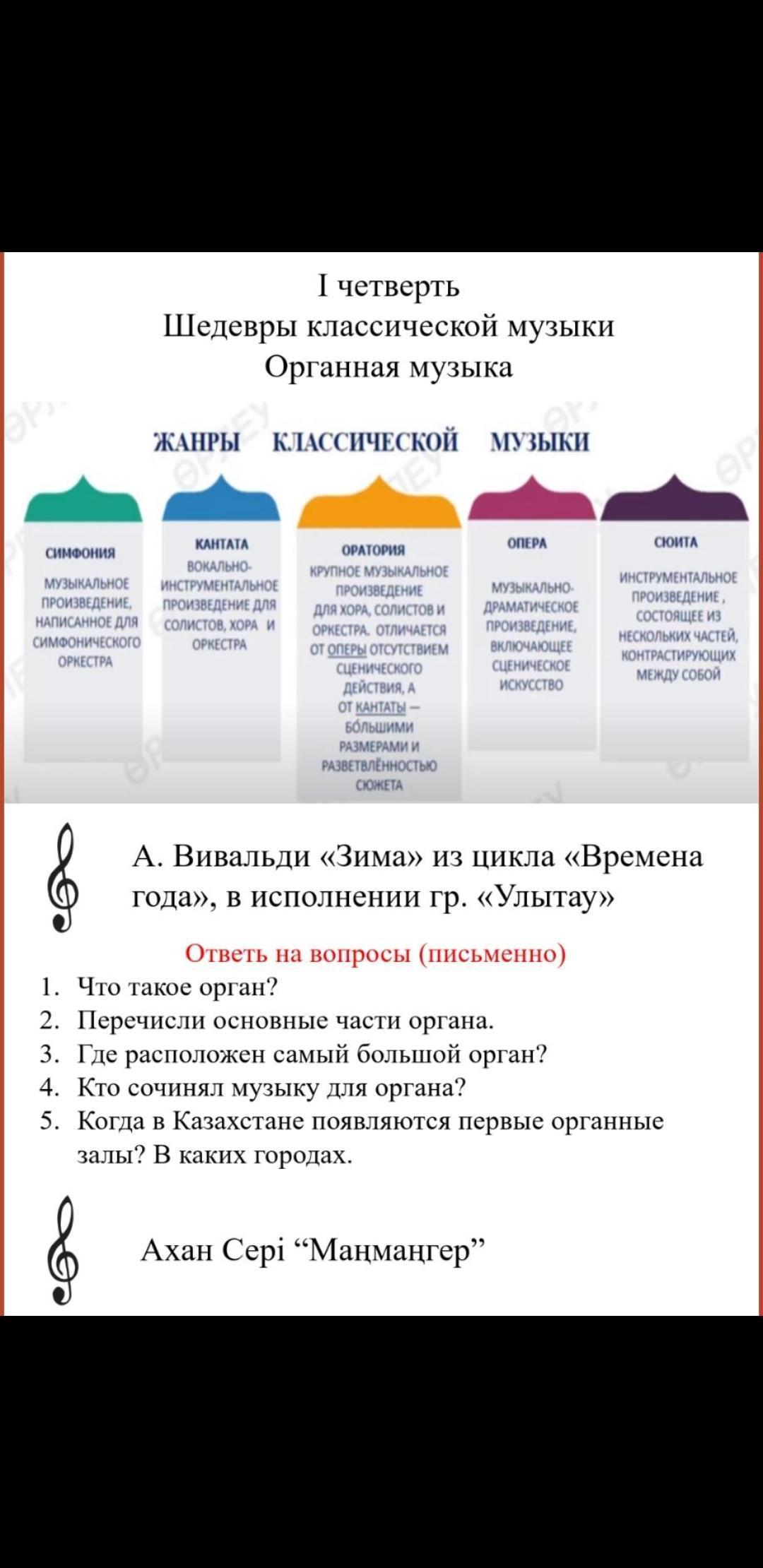Помогитееее, срочно пока интернет не отключили

Ответы
Ответ:
Объяснение:
1.Орга́н— клавишный духовой музыкальный инструмент. Большие концертные органы превосходят по габаритам все прочие музыкальные инструменты.
2. Инструмент имеет достаточно сложную структуру, состоящую из огромного количества различных элементов: трубы, мануалы, педальная клавиатура, меха, фильтра и электрические компрессоры, регистры с переключателями и многое другое.
3. В большом спортивно-концертном зале Boardwalk Hall, что находится в американском городе Атлантик-Сити, расположен самый большой в мире орган. Уникальный музыкальный инструмент состоит из 33 000 труб и 1200 клавиш.
4. Иоганн Себастьян Бах
Произведения для органа Иоганн Себастьян Бах писал во все периоды своей творческой жизни, но наиболее совершенные были созданы в Веймаре. В числе этих шедевров — прелюдия и фуга ля минор, токката и фуга ре минор и многие другие сочинения.
5. Астана